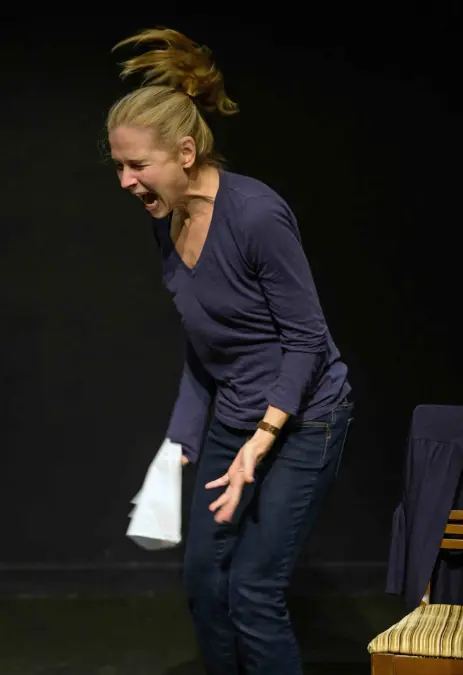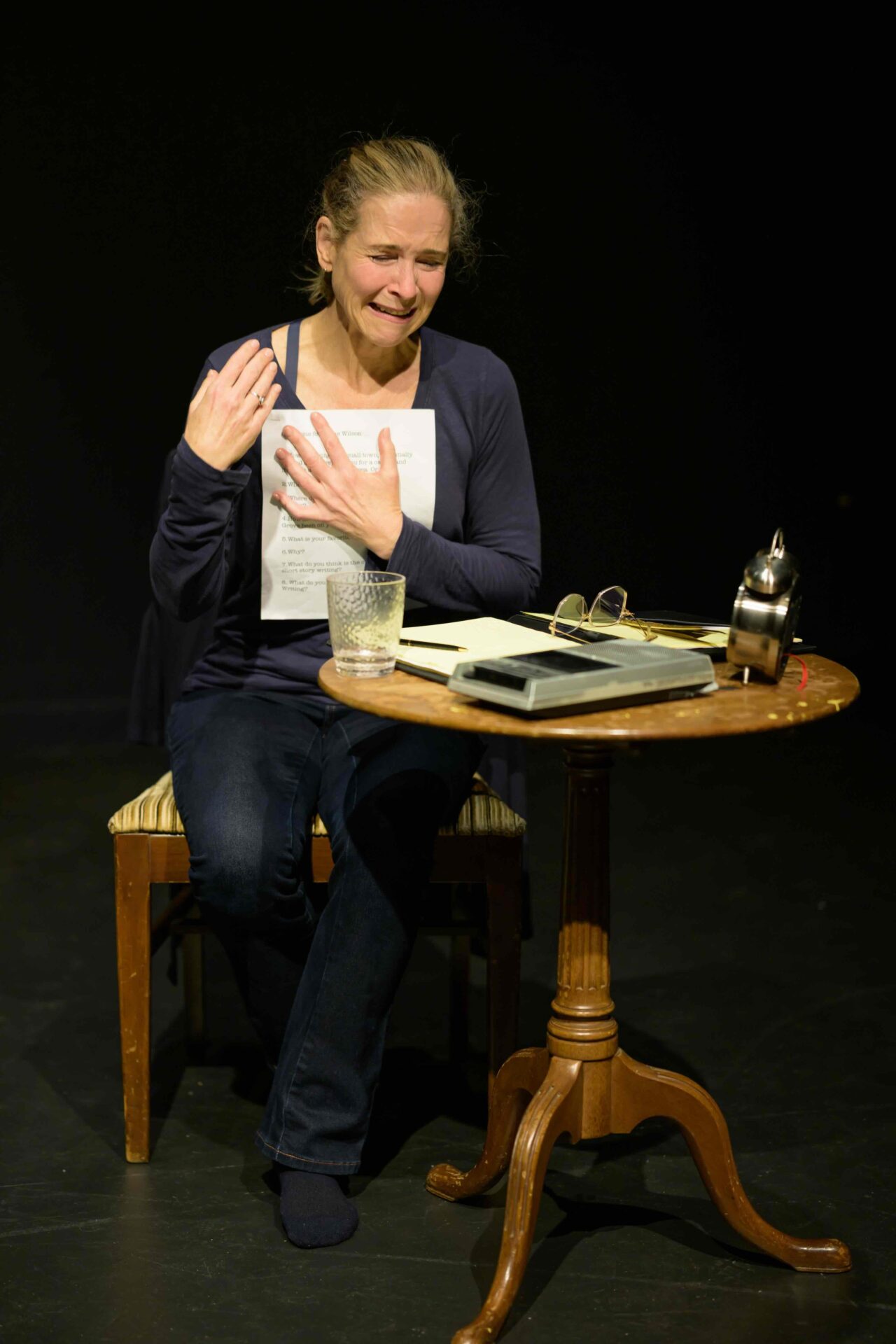
Lanford Wilson was a pivotal figure in theater, particularly known for his impact on the New York experimental scene and for highlighting the stories of marginalized individuals. Though he passed away in 2011, his works, including the collection of short plays in Who We Become, still resonate today. I had the chance to see two of the plays, “A Poster of the Cosmos” and “The Moonshot Tape,” directed by Mark Cirnigliaro and presented by Deep Flight Productions.

In “The Moonshot Tape” Margaret Curry plays Diane, a drunk short story writer recording an interview for her hometown high school newspaper. “Writing is the only time you can tell the truth and get away with it.” Diane says, before graphically recounting the sexual abuse she endured from her father for years. She struggles to answer the questions given to her on paper and often finds herself telling stories from her youth, college days, and sex life. “Trying to put my adolescence behind me,” Diane dryly states as she fixes herself another drink.

Towards the end of the play, she narrates a story of visiting her father years later, now an established and successful writer. Diane, alone with her father, tied him up and tore off his clothes. She got on top of him and wrote on his chest the story of her assault while she rode him. “This one is for me,” Diane says bitterly after finishing her story of revenge.
“The Moonshot Tape” sheds light on a dark reality that feels both honest and personal. Curry plays Diane with a lovable charm and a dry sense of humor that serves as a needed respite from the darker themes of the play. “The Moonshot Tape” sparks meaningful dialogue regarding the complicated effects and feelings of being sexually assaulted as a child and coping in adulthood. Who We Become now embarks to Edinburgh for this year’s Fringe Festival, and I’m excited to see the incredible plans they have in store.
EYE ON THE ARTS, NY — Frankie Lehr
